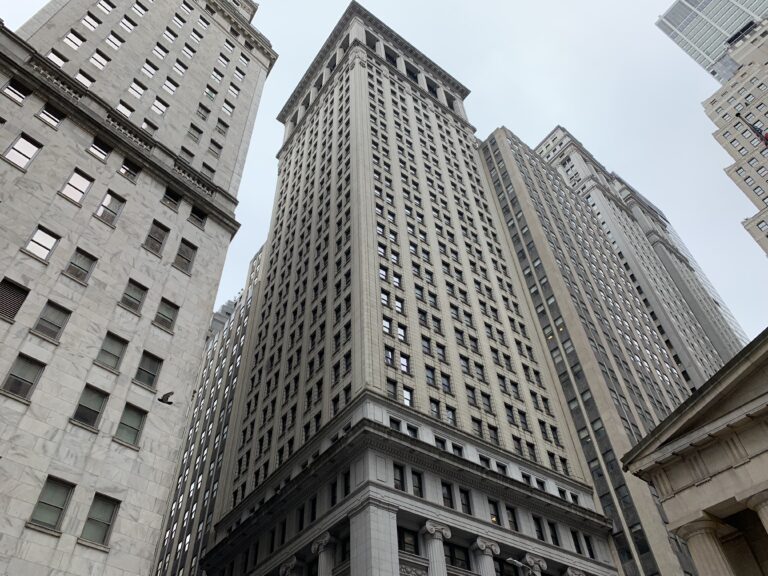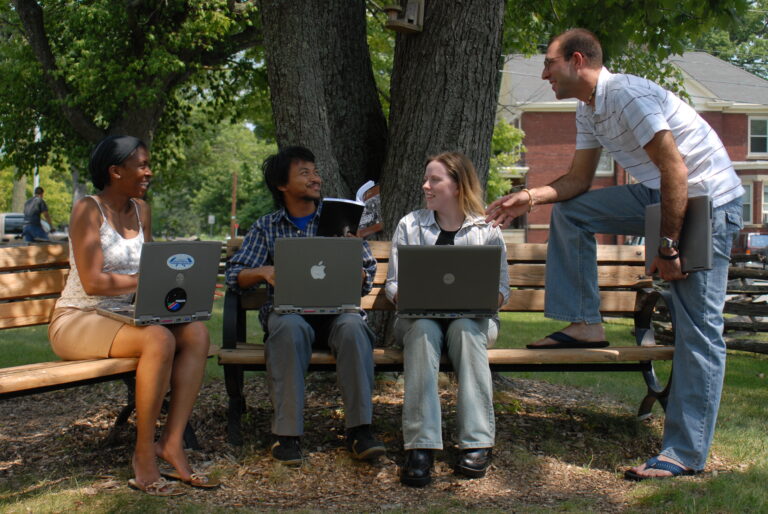Second Year of Application Growth Shows the Continuous Demand for MBA
With groups of minorities, women, and the underrepresented joining full-time MBA courses, Business schools see the growth of international students
At the beginning of the Covid shutdown, business schools saw a growth of applications due to the Covid-induced financial turndown that motivated people to upgrade their résumé and career path for when the economy rebounds. A report from the Graduate Management Admission Council (GMAC, the entrance test administrator) suggests that the high demand in 2020 was not an ephemeral phenomenon, based on the ongoing growth in 2021 with increased demand of 0.4 percent.
Sangeet Chowfla, president and CEO of GMAC, says that MBAs initiated more flexible admission policies for prospective students looking for new career opportunities while experiencing the economic shock, which in turn led to growth in applications last year.
Regarding the question of whether this trend was merely a momentary phenomenon due to the Covid-related economic recession or a beginning of continuous demand, Chowfla suggests looking at the 2021 application cycle. He says, “The surging demand for graduate business education is not a passing fad but has staying power beyond 2020.”
For some institutions such as the National University of Singapore (NUS) Business School, the increase in applications since the pandemic has been clearer in part-time applications than in full-time applications. According to Jochen Wirtz, vice-dean of NUS MBA programs, the school has welcomed a doubling in applications over the last two years since 2020.

Wirtz remains positive about such high demand as he expects to see a continuous uptick in applications in 2022, for many candidates seek to upgrade their credentials to land a better position in the post-pandemic era.
Wirtz adds that their prospective students have varying motivations: “from those looking to switch from industries badly hit by the pandemic, to those looking to gain the knowledge, skills, and network to break into exciting emerging industries such as fintech, impact investing, or sustainable energy.”
Despite the pandemic-related circumstances, a number of MBAs achieved unprecedented employment outcomes such as considerable increases in salary and job opportunities across finance, consulting, and technology fields.
Will the demand for MBA programs stay high?
In spite of witnessing the continuous increase in applications last year, some business school faculties find it difficult to expect the same for the upcoming academic year. David Simpson, MBA admissions director at London Business School, notes that their school experienced a surge in applications over the last two consecutive years since the pandemic. However, he adds, “We don’t necessarily assume these increases will continue through 2022 and beyond, but numbers are currently well above pre-pandemic levels again.”
Meanwhile, the increase in international MBA applicants last year may imply that student mobility is rebounding, which has been hindered during the peaks of the pandemic as a result of unwelcoming immigration policies around the globe.
For instance, the newly introduced post-study work visa played an important role in receiving more applications for London Business School. Simpson says, “I believe many people are keen to get out and see the world again after a really tough period of time.”
GMAC points out that the weighted absolute year-over-year difference in the number of international applicants shows an increase of 4.1 percent, while that of domestic applicants shows a decline of 3.8 percent.
Nevertheless, some administrators predict that Covid travel restrictions are likely to continue posing challenges for the business education industry worldwide, as the restrictions discourage prospective students from traveling to take courses abroad.

Soojin Kwon, managing director of full-time MBA admissions and program at Michigan Ross in the U.S., notes that accurate predictions about MBA demand for the upcoming year cannot be made at this phase of the admission process. She says, “We are excited about the applications we have received, but we also recognize that many schools set records last year, including at Ross where we saw over a 50 percent application increase over the previous year.”
New data from GMAC suggests that the increased demand for MBA programs was made largely by women and underrepresented minorities—while the growth in female applicants is reported by three-fifths of full-time two-year MBAs, the growth in male applicants is reported by two-fifths of such programs.
Katy Montgomery, associate dean of degree programs at INSEAD in France, Singapore, and Abu Dhabi, emphasizes the importance of diversity of perspectives and backgrounds for the quality of MBA programs. She says, “As student mobility gradually returns, the diversity it brings to a classroom will only benefit and enrich campus life.”
Read more: The MBA Labor Market is on the Rise






